This PBS fan watched every episode of ‘American Experience’
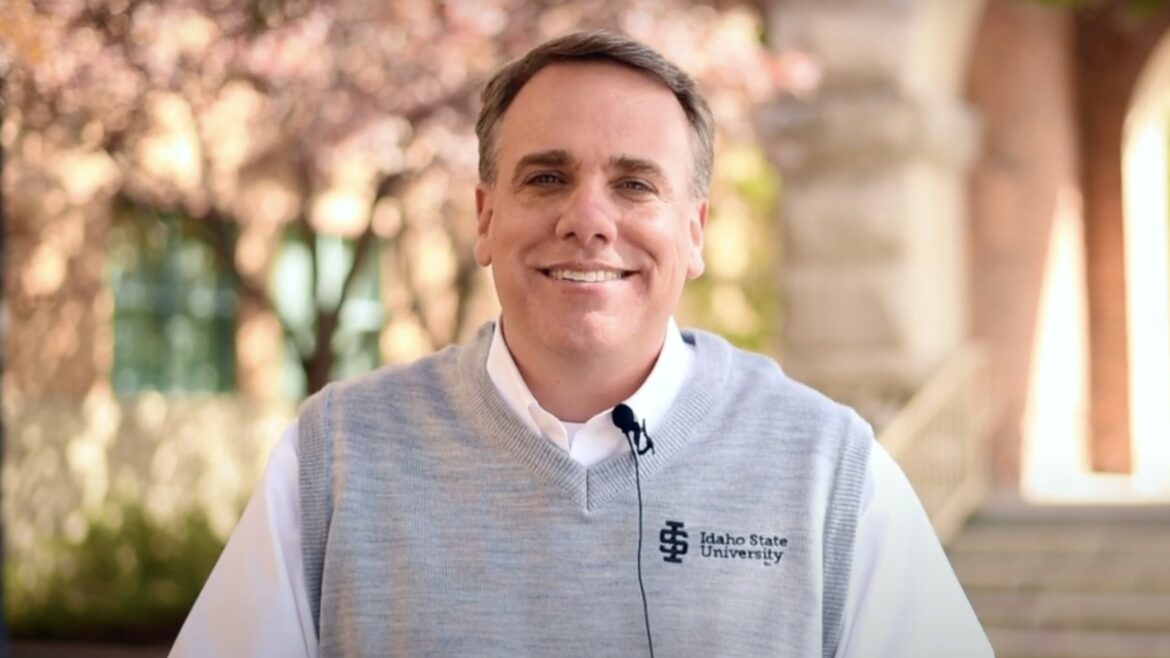
Shane Hunt, a professor at Idaho State University, completed his goal this year of watching every "American Experience" episode.
Some people say they love PBS and prove it by quoting Julia Child, Arthur or Call the Midwife. But can they compare to Shane Hunt?
In April, Hunt completed his quest to watch every episode of American Experience, produced by GBH in Boston since 1988. That required viewing the 378 episodes of the historical docuseries released up to that point, and the list keeps growing.
His television odyssey included multipart programs about Presidents Jimmy Carter, Ronald Reagan, Harry Truman and both George H. W. Bush and George W. Bush. It encompassed jazz icon Duke Ellington, the invention of the telephone and a rebroadcast of Eyes on the Prize.
It also included documentaries about women’s suffrage, blue jeans, Marcus Garvey, the Love Canal environmental disaster, Alexander Hamilton, Joe DiMaggio, the great San Francisco earthquake and the Church of Jesus Christ of Latter-day Saints. Hunt also watched programs about J. Robert Oppenheimer, the Stonewall riots, Henry Ford and Bonnie and Clyde.
The Idaho resident embarked on his mission in 2020, during COVID stay-at-home orders. He had just relocated from Arkansas after accepting a job as a professor of marketing and dean of the college of business at Idaho State University. At the time, he found himself physically isolated like millions of others.
During the pandemic, some people learned how to make sourdough bread, cleaned out their cramped garages and finally finished the sci-fi series haunting their shelves. In that mix of go-getters was Hunt, tackling his American Experience journey with support from his wife Jenifer, his son Andrew and his daughter Sarah.
Hunt, who is 48, told Current that he got his undergraduate degree in marketing from the University of Oklahoma, where he also minored in history because it was always an interest for him. He estimated that he’d probably seen 70 to 80 American Experience documentaries before attempting to watch them all.
“When the pandemic came four years ago … we went completely remote … so all of the things I like to watch and all of the things I like to do, we couldn’t do those things as a family,” Hunt said. “We love going to sporting events, and those were all gone. We love going to the movies, and that was all gone. We love going out for dinner as a family, but that was all gone.”
During the lockdown, Hunt realized he wanted to watch something that “would give me more optimism and make me better once we got to the other side of the pandemic.” So in the first three months of stay-at-home orders, before he could go back to the office in the summer, he tried to watch an American Experience episode every day.
“I said to my wife, ‘I obviously can’t continue to watch one every day, but I’ve really enjoyed this. The ones I’ve watched made me smarter and a better citizen,’” he said. “So then I said I’m just going to start watching one every weekend.”
“I didn’t start out in any way saying that I was going to watch all 378,” he said. “I didn’t know how many there were.”
PBS’ ‘profound’ impact on Hunt
The wide world of streaming can foster the belief that all of the world’s content is readily available. A good portion of American Experience episodes are accessible via the PBS app, PBS Passport and other streaming sites. But Hunt sometimes had to dig through the trenches of internet archives. He even had to buy a DVD player for episodes that weren’t digitized.
This might have frustrated others, but for Hunt, it was just another part of the process.
“I got tons of messages from people on LinkedIn and Facebook saying ‘How did you find them all?” he said. “The truth is, there is no short answer. I watched them on Netflix, Amazon Prime, YouTube, weird internet archives. I would joke with my daughter and say, ‘Hey, if I’m on the dark web and the FBI comes, tell them I’m just trying to find my American Experience!’”
Of the episodes Hunt viewed, several stood out as particularly powerful. He points to “The Blinding of Isaac Woodard,” a 2021 film about the beating of a Black man at the hands of South Carolina police in 1946. Isaac Woodard had just been honorably discharged for his service in the Pacific during World War II and was taking a bus home, still in uniform. The assault left him completely and permanently blind. The attack is considered a watershed moment ahead of the civil rights movement, particularly because an all-white jury acquitted the police chief who took part in the beating.
Hunt’s grandfather is a WWII veteran, so he has a particular interest in films relating to American wars.
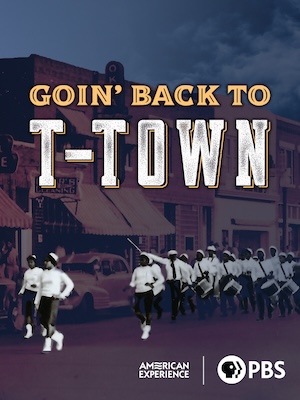
“Very few television programs have had such a profound impact on me,” he said. “To see … that terrible atrocity [and] how American Experience connected the dots from that act to Brown v. Board of Education and the end of segregation, the way they were able to focus and connect it to social change … at the end of the two hours I felt better, smarter and more hopeful.”
Other films that caught his attention during his lockdown binge were a two-part 2015 series on Walt Disney, a 2003 film on the transcontinental railroad, and the 1993 film “Goin’ Back to T-Town,” which focuses on the 1921 Tulsa race massacre.
“American Experience taught me things that even living close by, I had no idea,” he said. “I worked downtown just a mile from where the Tulsa race riots had been, and yet, growing up in Oklahoma, and living the first 31 years of my life in Oklahoma, I knew virtually nothing, other than someone saying there was a plaque there. I learned nothing about it in school.”
Life as a completist
Hunt is a lifelong fan of public media. He grew up with Sesame Street and vividly remembers when the Incredible Hulk, played by Bill Bixby, visited Mister Rogers’ neighborhood in 1980. He can also remember the first American Experience films he saw: The Kennedys, a two-part film that first aired on back-to-back nights in September 1992, when Hunt was in high school.
Over the years, Hunt became a fan of Ken Burns’ Baseball and Hemingway, the latter co-directed by Lynn Novick. He also likes the 2022 special Betrayed: Surviving an American Concentration Camp, partly because it mentions the Minidoka National Historic Site in Idaho.
When he lived in Arkansas and was a business professor at Arkansas State University, Hunt was a member of his local public television station, Arkansas PBS. When he moved to Idaho, he started supporting Idaho PBS and joined its friends board in 2022.
Hunt is undoubtedly a completist, though he said he hadn’t realized it before a reporter suggested the term.
“I’m going to tell my wife that. I think it’s a cool word for it,” he said. “I’ve never put a label on it, but I’ve always tried to be very intentional about seeing things through.”
In 2017, Hunt and his son Andrew completed their goal of watching a Major League Baseball game in all 30 professional stadiums before Andrew went off to college at Idaho State University. They co-published a book about the experience in 2018.
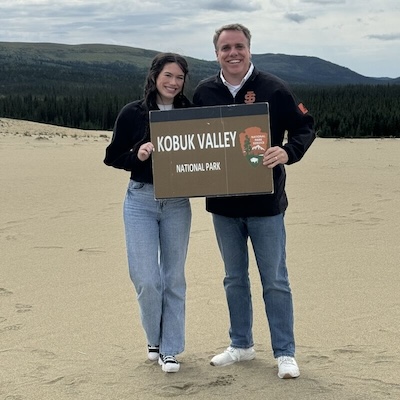
And this summer, Hunt and his daughter Sarah completed their 13-year project of visiting all 63 National Parks before she starts college at Arizona State University in the fall. They celebrated completing their goal at Kobuk Valley National Park in Alaska. Public media also had a hand in inspiring that goal — it was sparked by watching Ken Burns’ 2009 docuseries The National Parks: America’s Best Idea.
“We did it!!!! Sarah and I finished our father/daughter adventure,” he wrote on Linkedin. “I am thankful for the cars, planes, trains, boats, buses, cruise ships and sea planes that got us to these remarkable and often remote National Parks. Finally, I am thankful to God for blessing me with the opportunity to be Sarah’s Dad. … Every second of my life is better because she is my daughter and I am forever happier because of this adventure we have shared together.”
Hunt inspires others with his excitement about his goals and how he describes them. His projects spring from a desire to share his love for something with his family, whether it’s nature, baseball or history. He takes great pride in the fact that Andrew, who has since graduated from college, found time to watch a couple of American Experience documentaries of his own volition.
Large lessons learned
Hunt had to be resourceful to complete his American Experience goal. He maintained a spreadsheet to track which films he’d seen and where to find those he had yet to watch.
Eventually, Hunt had to contact GBH for help finding episodes.
“Anytime he hit a roadblock and was trying to find an older, obscure episode, he would come to me,” said GBH CMO Tina Cassidy. The American Experience team in Boston was “literally digging around in closets looking for old DVDs or VHS tapes,” she said.
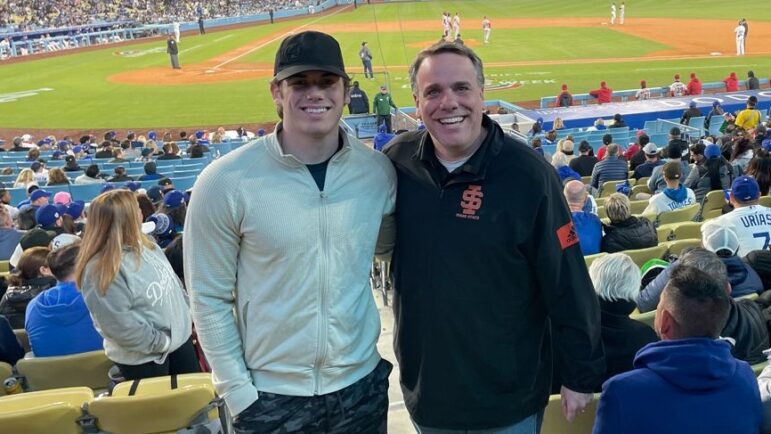
After helping Hunt find 15 episodes that he had been unable to track down, Cassidy agreed to contribute to the McGraw Hill marketing textbook Hunt co-authors, which is in its fourth edition. Cassidy also said GBH sent Hunt American Experience merchandise as a “thank you” gift.
“We felt so inspired that there was someone out there who cared so much,” she said. “It was exciting for us, too.”
American Experience EP Cameo George said Hunt’s interest in the program reinforced for her the impact the series can have on viewers. “It’s a real testament to the kind of storytelling we do, but it also speaks to the importance of American history,” she said. “I think his efforts are a reminder … that we’re doing it in a way that is informative and enjoyable. It’s not medicine.”
When Hunt announced the completion of his American Experience mission, he received acclaim from friends, family and people he doesn’t know personally. GBH shared his post on X, formerly known as Twitter, on the American Experience Facebook and Instagram accounts.
“Bravo, Dr. Hunt. PhD-level fandom,” the station said in the Facebook post. Commenters said they wanted to take up the challenge themselves. Others simply said they were speechless.
Hunt’s colleagues at Idaho State responded similarly. Some started asking him to recommend history documentaries. Others asked him to share something he had learned, a difficult question considering he had spent hundreds of hours watching hundreds of programs. But he does have a final takeaway.
“Watching American Experience … you get a really great picture of all the things as a country that we’ve gotten right, amazing things, but you also get a really clear picture of all the stuff we’ve gotten wrong, terribly wrong, across our entire history,” he said. “At our best, we’re a country that’s always trying to be a more perfect union. I hope every day that we do that. We are a more perfect union when we understand the things we got right and the things we got wrong, because we can always work towards being a better version of ourselves.”
Hunt’s favorite American Experience films:
- “The Kennedys,” 1992
- “Reagan,” 1998
- “The Transcontinental Railroad,” 2003
- “Walt Disney,” 2015
- “Last Days in Vietnam,” 2015
- “The Blinding of Isaac Woodard,” 2021


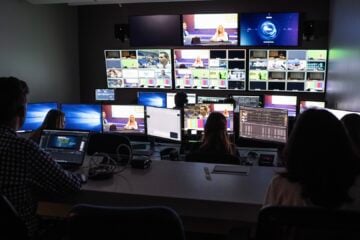
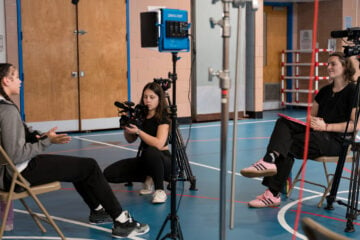



I have recorded American Experience on my local Seattle PBS network for years. I’m happy to say I’ve watched the episodes mentioned in this article. My reasoning is much like his; to learn things.
In some way I feel like a kindred spirit to Shane Hunt. Before I was married decades ago, I was a Hunt by birth. My dad, Keith, instilled a love of learning. On our annual trips down south from Toronto Ontario, he always impressed on my sister and I what differences and similarities there were between our two countries. We stopped at road markers and sites on maps, commemorating people and events. I learned more from those annual roadtrips than any school books held. They helped me understand the difficult and the beautiful about America. But the best thing I got from Dad was a quest for knowledge & understanding. I agree with Shane Hunt’s list of favorite American Experience episodes, but I’d have to add Rosa Parks and the Montgomery Bus Boycott. We had a housekeeper at our winter home during that time. She wouldn’t let Dad pick her up or drop her off. I was only 8, but he impressed on us the importance of what the bus boycott represented and why Tempe was doing it. It’s stayed with me my whole life.
I usually let friends know if a program is coming up that I think will be of interest because PBS really is ‘television worth watching’.